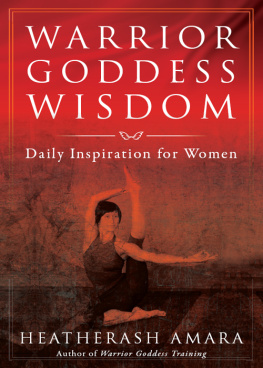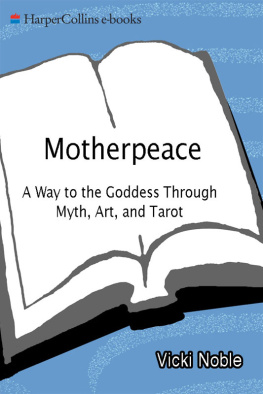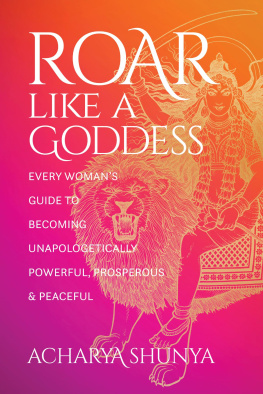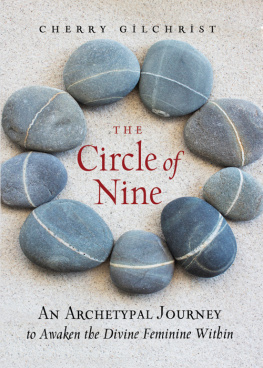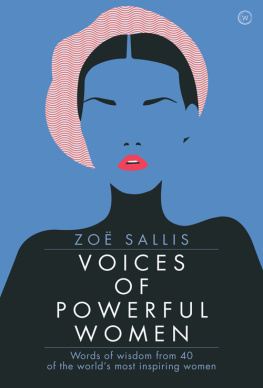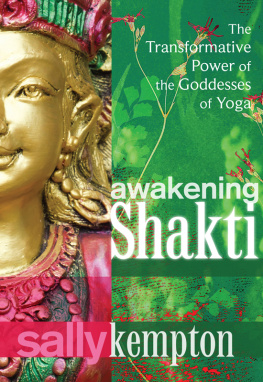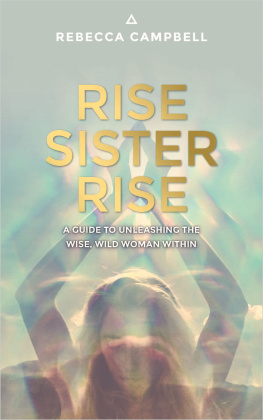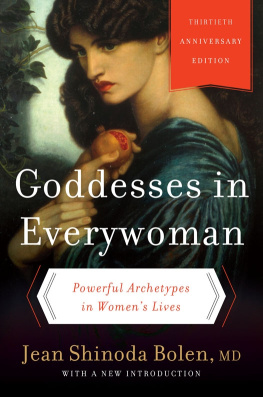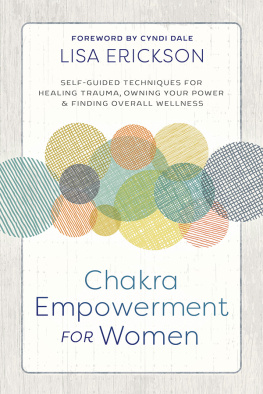Table of Contents
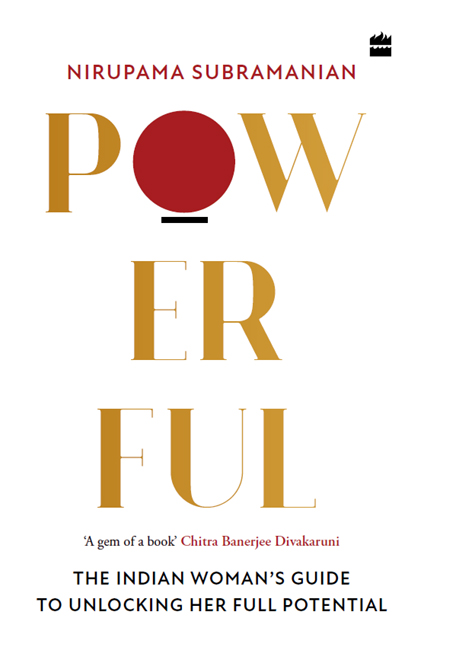

For Kaavya
You are already powerful.
Contents
O ne day, Vasuki was drawing water from the well. Just as she was pulling up the bucket, she heard her husband call her from the house. Vasuki immediately left the bucket and ran to listen to her husband and fulfil his need. When she returned, the bucket was still in the air, hanging just as she had left it.
I listened rapt as my grandmother narrated this story. We had a well in the backyard of our house in Chennai and I would often watch our maid haul the rusty iron bucket of water up, her hands working hard on the coir rope to ensure the bucket did not drop. It seemed impossible that a bucket would stay suspended in mid-air, defying all the laws of gravity and nature.
But such is the power of a virtuous, obedient woman.
Somehow this story of Vasuki, the wife of the great Tamil poet Tiruvalluvar, has stayed with me through the years. Vasuki was the epitome of the ideal wife. She was so chaste that she turned a handful of sand into warm rice and served her husband a sumptuous meal. She was so obedient that she did not question her husband when he asked her to fetch a lamp in broad daylight. She was rewarded for her devotion and goodness by dying a married woman, a sumangali, saved from the terrible fate of a widow. Why did she not use her amazing transformative powers for any other cause? Did she get these powers only because of her devotion to a man?
I did not get any answers to these questions.
When I was about seven-years old, my parents took me to watch a dancedrama based on the story of Savitri and Satyavan. Savitri was a talented and beautiful princess who gave up her wealth and status to marry Satyavan, the impoverished son of a deposed king in exile. Despite being dissuaded by her elders and despite being warned that Satyavan would die within a year of marriage, Savitri insisted on marrying him.
For a year after marriage, she served her husband and in-laws with selfless devotion. Then the inevitable happened. Satyavan died. Yama, the god of death, himself came to take Satyavan away. But the devoted wife refused to give up. She followed Yama doggedly till he was moved by her sincerity and perseverance to grant three boons. Savitri cleverly asked him to bless her with children. The exhausted and absent-minded Yama agreed, not realizing that she needed a living husband to give her the children. I still recall the triumphant face of the voluptuous actress in the shiny green sari as she fell at the feet of her resurrected husband.
What do I remember this story for? Not for Savitris resourcefulness or resoluteness. I remember it for her selfless love and fidelity to her husband. Why? Because this is what we celebrate. Sati-Savitri is the phrase we attach to this woman, a connotation that implies a woman can only wield her power in the service of a man. Millions of Indian women still fast and perform prayers for the long life of their husbands on a day that is dedicated to Savitri in the Hindu calendar.
Why do we not see Savitri as a powerful woman who used her wit and perseverance to bring a human being back to life?
As I write this, I wonder about the power of the stories of Vasuki, Savitri and others. Stories where women did not make a fuss, did not cross lines, did not question authority and were rewarded. There are other stories too, where they broke rules and were punished. There are stories where they were courageous, resilient and wise. Yet we never recognize them as powerful in their own right. Like Vasuki and Savitri, women through the ages seem to have derived their power from their connection to men and have used it to serve men and/or the children in their lives.
Powerful goddessesDurga, Kali and Shaktiare divine energies that saved mankind from evil, Lakshmi can bring prosperity into your life or take it all away at her pleasure; but your average woman is not allowed to be a goddess. There is something fearful and even dangerous about a woman in her full power. To survive, we have had to deny our power, the Shakti energy in us. There have been times when I have felt powerless.
I am a good girl from a privileged family. I was an intelligent, hard-working, confident student and felt comfortable enough to use public transport in Class XII. Yet, when a rough male hand groped my body in a crowded bus, I froze. My mouth dried up and I felt a nauseous sensation, that I later recognized as shame. It did not last more than a few seconds and by the time I decided to do something, the man had merrily moved on. After that incident, I made sure that I never boarded a very crowded bus ever again, preferring to wait or walk a distance to await a ladies special bus that ferried only females.
During meetings at work, senior clients would speak to my male colleague rather than make eye contact with me. Even if I made a statement, the next question would be directed to my colleague. I would get annoyed but never brought up the issue with anyone. It left me feeling just a little less confident as a leader. I dismissed these clients as male chauvinists, but wondered if I had somehow diminished myself. Did I not appear to be someone capable of holding a position of power?
The turning point came when my eight-month-old daughter fell ill with a severe E. coli infection and had to be hospitalized. With her nanny also hospitalized for an emergency surgery, it was a harrowing time for me, as I dashed and darted between the two hospitals, my office and my home, trying to hold everything together. I felt both helpless and angry. Guilt and shame drained my energy at home and at work. I quit my job and vowed never to be in such a situation again. A part of my identity as a supermom, who expertly juggled work and motherhood, had just collapsed. I felt like a failure.
Recently, I travelled to Bengaluru on work. I always make sure that I land before 9 p.m., but my flight took-off late. By the time I got out of the airport and into a cab, it was 11 p.m. I was tense throughout the ride to the hotel and more so when the driver took a desolate road. I stayed glued to Google maps verifying the route throughout the journey, and was immensely relieved when we arrived at the hotel by midnight. I shouldnt have to feel this way, I thought.
I felt powerless because of my gender. But this incident drove another point home: the occasions when I have felt powerless, the powerlessness has almost always been rooted in my gender. The workplace also reflects this powergender imbalance. In more than two decades in the field of leadership development, I hardly saw any women in senior roles in the companies I worked with. The number of women, in fact, dwindled as seniority levels rose.
In 2018, I set up my own firm GLOW, Growing Leadership of Women, along with my business partner, Aparna. As I started working with women as a coach and facilitator, I noticed how strong those old messages were.
Women face challenges that are a little different from those faced by men. We do believe we are in a brave new world and that the glass ceiling can be broken. We do want to integrate with the rest of the world and embrace modern values without letting go of our traditions. Women are heading companies and thriving as doctors, lawyers, performing artists and entrepreneurs, yet we struggle with questions that mostly never trouble men.
Should I fast on Karva Chauth for my husband even if I dont believe in it?
Can I disagree with my bosses when I have been brought up to obey my elders?


